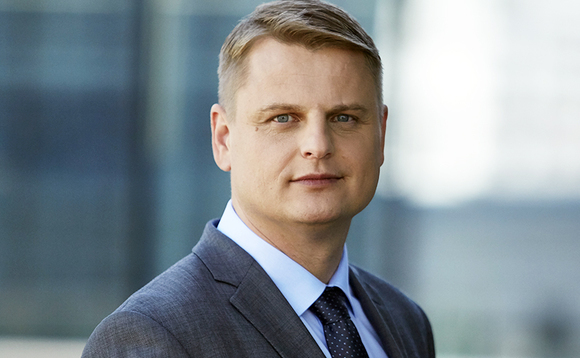
LP Profile: PFR increasingly eyeing funds outside Poland

Polish LP PFR Ventures has invested €75m in four private equity firms in recent months, including Apax Partners, PAI Partners and Avallon MBO. Investment director Michał Gładyś talks to Eliza Punshi about the firm's newly created PE arm, backing international fund managers eyeing Polish companies, and developing PE as an asset class in the country
Polish-government-backed development institution PFR Ventures was established in 2016 to invest in venture capital and private equity funds. The PFR PE programme was created in 2020 with the aim of accelerating the development of the asset class in Poland. It targets both local and international managers that invest in Polish companies at the growth and buyout stages. PFR has PLN 2.5bn (€500m) in assets under management.
Michał Gładyś, investment director at PFR's PE arm since February 2020, says the firm wants to accomplish three goals – support Polish companies, bolster new Polish fund managers, and aid the development of PE as an asset class in Poland.
He says that, outside the country, the LP looks for "top-quartile and top-decile performing fund managers that have a story we believe in, and have an engagement in Poland."
The LP committed a total of €75m in the second half of 2020 to global players Apax Partners and PAI Partners, Poland-based Avallon MBO and an unnamed US-based fund. It has so far backed seven fund managers, having previously committed funds to Polish GPs Innova, Mezzanine Management and Value4Capital.
PFR targets pan-European and global managers that have a presence in Poland via an office or a person dedicated to the country; and they must have a track record of having invested in the country, or a pipeline of Polish investments that are being considered for a new fund. Gładyś says the LP could not limit itself to backing local GPs exclusively: "Firstly, there's not that many of them, and secondly, even if we did, we want to be picky and so we wouldn't be able to allocate all the capital that we have."
The LP says it plans to back at least a few of the emerging managers in Poland. Gładyś says: "Poland is now at the stage where there are investment managers with portable track records and really good experience from having worked at large organisations, and who are now looking to start something of their own. While those opportunities are typically risky, they are very well aligned with what we're trying to accomplish."
He adds that having the support of a state-backed investor gives newly established local fund managers a stamp of approval when raising money outside the country. "When they fundraise with pension funds and endowments in the US and are faced with that first question about whether they have an investor from their own country, they can say yes."
Deployment strategy
PFR plans on completing four or five PE transactions in a year, deploying €5-25m in growth and buyout funds, up to a maximum of 25% of a typical fund. It is also eyeing private debt fund managers, with Gładyś adding that the private credit market has increasingly been attracting pan-European and global managers to the country: "In Poland, managers can still get a coupon of 10% or do mezzanine deals for even higher. Even if you include the risk of Poland being a lesser known country, the returns are still very attractive. If you can achieve low-teen numbers unleveraged, that's excellent for investors."
The LP currently has PLN 600m available, of which it has committed PLN 450m to seven fund managers. Gładyś says PFR PE is currently working with PFR Ventures to get additional funding of a similar amount, which it plans to deploy in PE funds over a three-year period. The LP also expects to have access to a larger pool of capital from the Federal Demographic Reserve, belonging to Polish pensioners, and expects to start allocating the capital towards the end of 2021.
The investor is aiming to back large, international players, as well as those active in the mid-market, where Gładyś believes there are more opportunities to transact, and more scope for managers to improve portfolio companies. "The market for large transactions is well-covered, but smaller companies are not that well-known, and a lot of work is involved in bringing them up to a level where they become leaders and can expand on a pan-European or global platform," he says. "That's what we like, a lot of room to improve, to invest capital to make companies better – which also leads to a very good investment and a very good return."
Latest News
Stonehage Fleming raises USD 130m for largest fund to date, eyes 2024 programme
Sponsor acquired the public software group in July 2017 via the same-year vintage Partners Group Global Value 2017
Stonehage Fleming raises USD 130m for largest fund to date, eyes 2024 programme
Czech Republic-headquartered family office is targeting DACH and CEE region deals
Stonehage Fleming raises USD 130m for largest fund to date, eyes 2024 programme
Ex-Rocket Internet leader Bettina Curtze joins Swiss VC firm as partner and CFO
Stonehage Fleming raises USD 130m for largest fund to date, eyes 2024 programme
Estonia-registered VC could bolster LP base with fresh capital from funds-of-funds or pension funds









